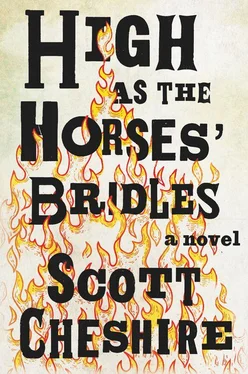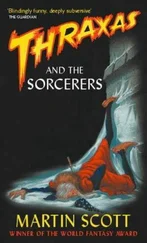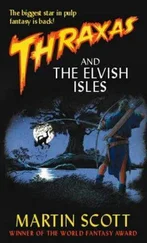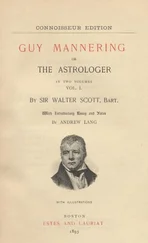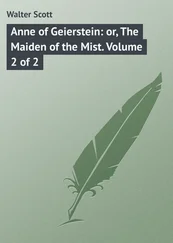Across the street was a small garage with a sign that read “Fix-a-Flat.” On the oil-stained sidewalk in front of the garage a box radio on a torn leather recliner played fast English metal. High operatic vocals. An older man in a Motörhead T-shirt came out of the garage and saw me. He lowered the volume, and waved in a vague way. He looked a few years younger than Dad. I imagined he had just one child, a son about my age, and they shared an expensive set of custom tools, they lived on the block. They drank beer together and even came to blows once, ten years before, at a cousin’s wedding. And now they worked in the same garage and were always arguing over the radio station. Dad shakes his head saying I don’t care if they do come from Queens, it doesn’t get any better than Motörhead. They never speak of God, of devils and demons, of Armageddon, they never speak of any life but this one, and never once have they figured that the mystery of love and hate, and war and peace, and sex and food and Motörhead should not be enough for us on Earth. It felt good to be out of the dark house, and to be out walking in the sun.
I looked at the photos again and felt that somehow they made for some weird metaphysical equation that resulted in my eventual going back. Then, one block away, there it was: the Queens Howard Theater. The mammoth overhang of the copper marquee shined like a billion flattened pennies. Spelled out in big block letters: “The Landmark Queens Howard Theater.” I stood under it. A large bronze plaque between the two front doorways read, “Placed on the National Register of Historic Places.” Beneath that, black letters on a shiny new gray-metal sign, “Tours Given.” I got queasy as I remembered standing in that very same spot holding my mother’s hand. She had a brand-new perm, and Dad wore dark maroon penny loafers. Sermon notes were folded in my suit coat pocket, a Star Wars figure somewhere on my person.
I opened the doors.
Inside, the place was old and stately, but crumbling, once majestic, like the foyer of some failing antebellum estate. The ceiling still arched high above and a chandelier gently rocked there like a cracked crystal palace above an empty marble fountain. A rusting sign beside the fountain pool read “The Looking Glass.” At either side of the pool, alabaster columns stood at the base of opposing marble stairways that rounded outward and upward. They looked like a pair of smooth white bull’s horns leading to the second floor. The foyer walls were separated into rectangular paneled sections, with an elaborate molded framing for each. Within each frame were fading murals, depictions of famous biblical scenes. The Binding of Isaac. The Four Horsemen, white, red, black, and pale. Some of the murals were cracked, some vandalized, others surrounded by scaffolding. A handful of people were on the scaffolding lightly brushing at the walls.
No one seemed to mind me taking the stairs.
At the top, I turned and saw the rigging that held the chandelier in place. I pulled the bagel from my pocket, unwrapped it from the napkin, and bit off a soft chewy lump. There were voices behind me.
A small group of ten or twelve people; about half were young children and teenagers. The kids looked bored and restless. Some wore headphones. A man in a light pink seersucker suit and oversized horn-rimmed glasses was leading them. He said to me, “Did you want to join us? We’ve not yet seen the Great Room.”
I made an embarrassing animal grunt, my mouth stuffed with bagel, and I nodded, Yes, please. Taking my place in the back, I puffed out my cheeks, making a funny face at a small boy who had a furrowed brow and wispy eyelashes. He turned away. Who was this kid?
“The chandelier weighs six hundred and fifty pounds,” the guide said. “And if you wonder how in the world they do this kind of thing, the flowers and candle shapes, the entire piece is made of soda glass.”
The small boy said, “What kind of soda?”
The guide went on as if he’d not heard the kid’s question. “She’ll be back in working order soon enough. The fancy parts all fixed. But it’s a slow and very expensive process.”
A freckled boy of about sixteen quickly took off his headphones. “How much?”
“A lot.”
“But how much? A million?”
I was sure at this moment that raising a teenager must be a hellish thing.
The guide brushed at the arms of his suit, facing away from the group. “The chandelier, I’m afraid, is a nagging question. It’s not of Howard origin, and we’re not sure where it comes from.” He turned and faced us. “We’re in the business of restoring the original state and spirit of a place.” He waved us toward two doors in the center of a rounded wall. “And now we have the Great Room.”
He opened the doors. And there it was. I swooned.
How many times in a life do we swoon? I can think of only a few, and this was one of those: a major swoon. I had to grab hold of the wall because my stomach was flipping and I thought I might vomit. Then it stopped. I realized it was also because of the stink. Burning hair.
I asked him, “What’s that stink?”
“Sulfur. We’re raising the foundation some. Found a pocket way below. Ladies and gentlemen, the Great Room. Feel free to move about the balcony.”
This was beyond déjà vu. It was dream leakage and it physically moved me. I had to step back out into the hall for a second. And then I stepped back onto the balcony of the Great Room. And that same odd rush of memory and oversensation rivered all around me: the ceiling, the stage — I saw him clearly down there, little boy Josiah, little me. Behind the microphone, and standing still. The audience wondering if I’ll finish. Is the boy finished? I watch him lower his arms and bow. A long second passes and it’s clear: It is finished, the boy is finished, and the audience explodes with applause, four thousand clapping their hands, and they raise their arms, clapping above their heads …
“Sir?” The guide was standing next to me.
“I’m fine. I’m just—” I knocked on the door, inspecting its hinges. “Beautiful work.” The headache reared up, reminding me it was still there.
Satisfied, he pressed his hands together in a prayer formation. He bowed. “We do our best.” He approached the edge of the balcony and gripped the brass handrail. “The ceiling, of course, is why we’re here. Note the surface.”
We all looked up, fifteen or twenty feet above our heads, where the ceiling was a steely gray. It had really faded. Some roundish silver and white static stars like milk splashes decorated the surface, a chipping and powdery plaster shown in blanched swaths from underneath. Then the stars began to glimmer and glow. They shook with a slight and unstable radiance, and they went out.
The guide was waving a large flashlight at the ceiling.
He said, “Voilà! You get the general idea.”
He turned and cast the light onto a greater expanse of the ceiling, where it dissipated into an ecliptic glow. “Now imagine the entire ceiling all lit up with stars and planets and shooting stars. All semifunctional until about fifteen years ago. And by then the Skyrograph, our very wonderful projector, was already sixty years old. She is right now, even as we stand here, being restored off premises. One of very few in the world, and did basically, very basically, what I just did with this flashlight. Only more. Who sees the moon?” He pulled the pant fabric up from his knees, and crouched. He said in higher register to the small children, “Hmm? Who sees the moon?”
I asked him, “What about the bridge?”
“Well.” He straightened. “It’s a real bridge, a small-scale replica of a famous bridge, the Rialto in Venice. There were clouds.” He pointed with the flashlight. “Usually there and over there.”
Читать дальше
